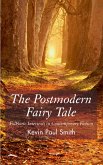Edith Wharton's wide reading in the nascent disciplines of anthropology, sociology, and evolutionary theory of her day plays a role in her social fictions. She understands her world in binary terms of belonging and exile, of spatial boundaries and exclusions, and tribal behaviour. She applied that intellectual framework to the struggle to preserve the Old World from the territorial and cultural threat of the Great War. In linked thematic sections, Claire Preston considers ideas of tribal inclusion and banishment, buccaneer figures whose money-energy overcomes tribal demarcations, and expatriatism, the self-imposed mode of exile which fed Wharton's apparently chilly empiricism and was the origin of some of her most important work. She suggests that, against the claims of realism, Wharton should in fact be included in the early Modernist canon.
'Claire Preston's appropriately elegant Edith Wharton's Social Register studies the modes by which Wharton registers her perennial interest in the politics of inclusion and exclusion...Preston's alert, appreciative readings maintain Wharton's most intrinsic aesthetic: the art of the fine distinction.' - Sarah Churchwell, Times Literary Supplement







